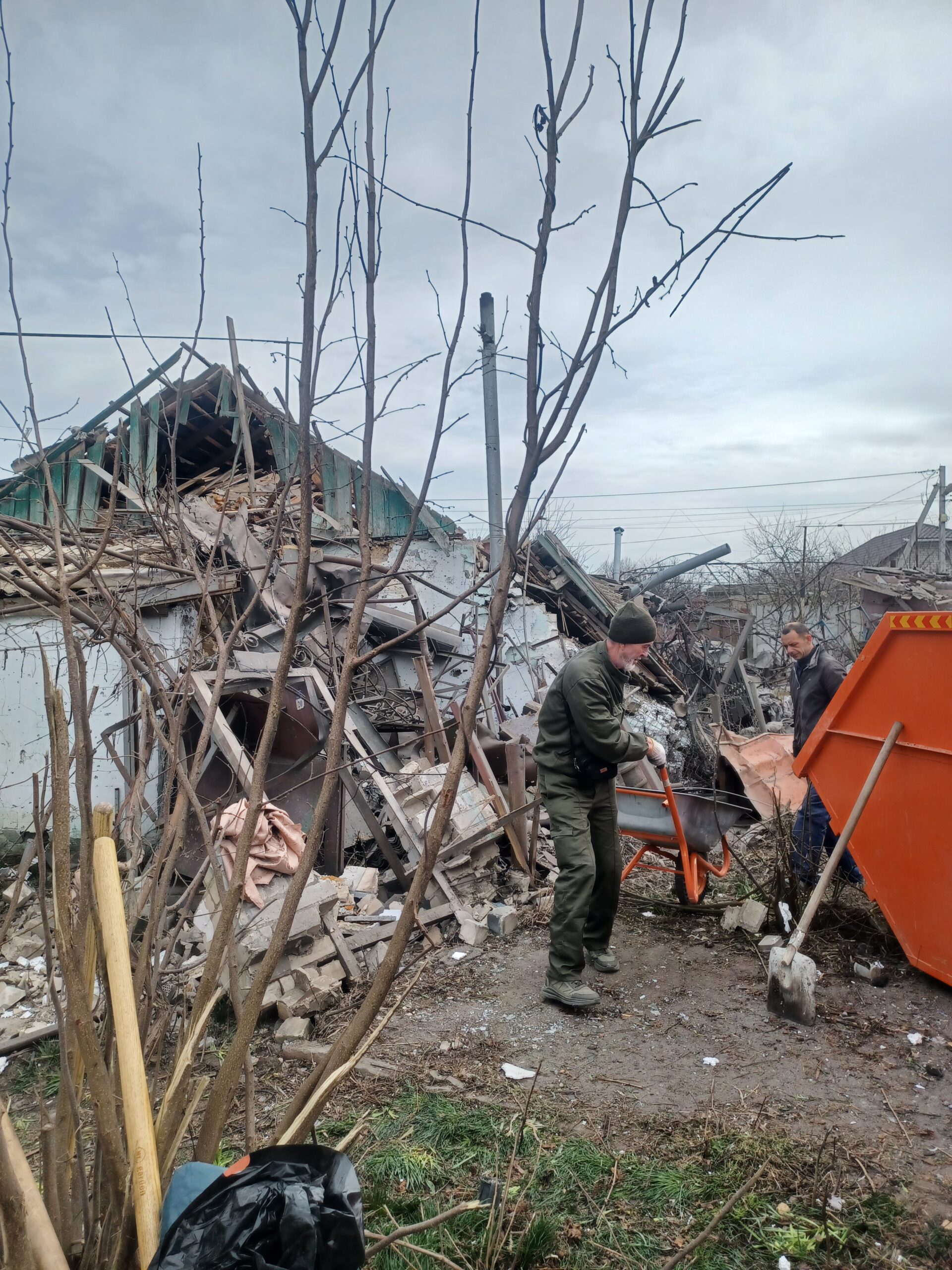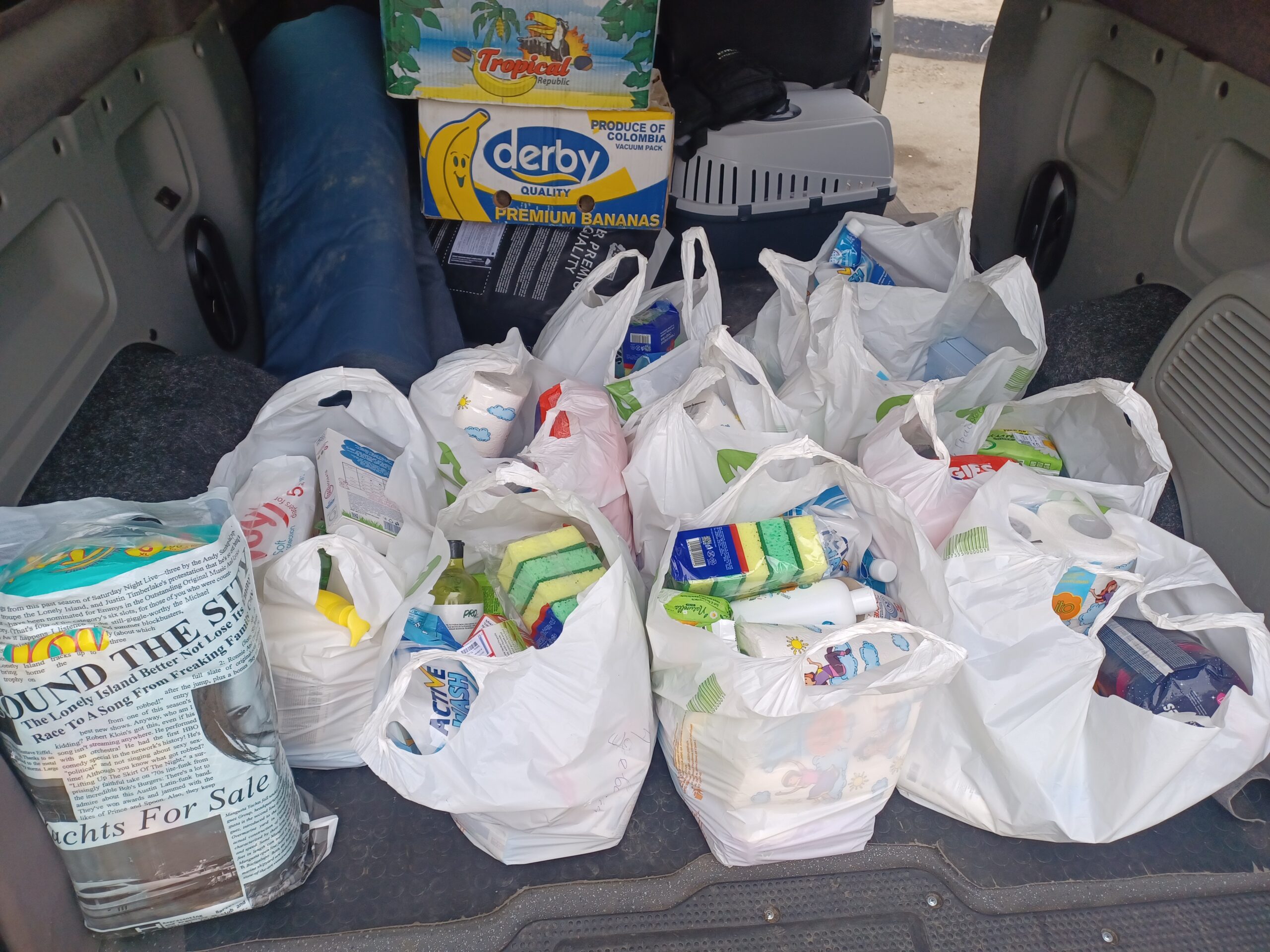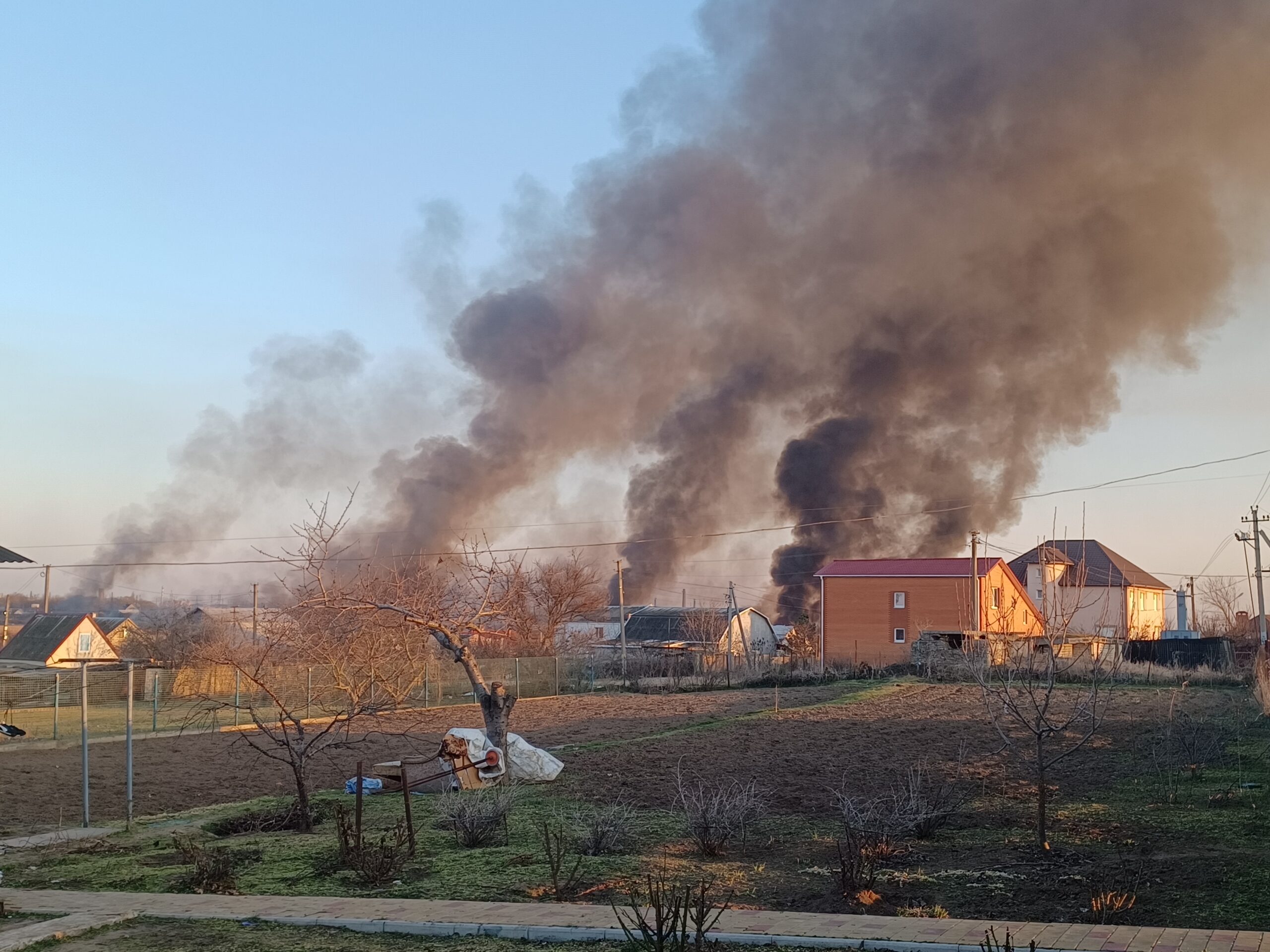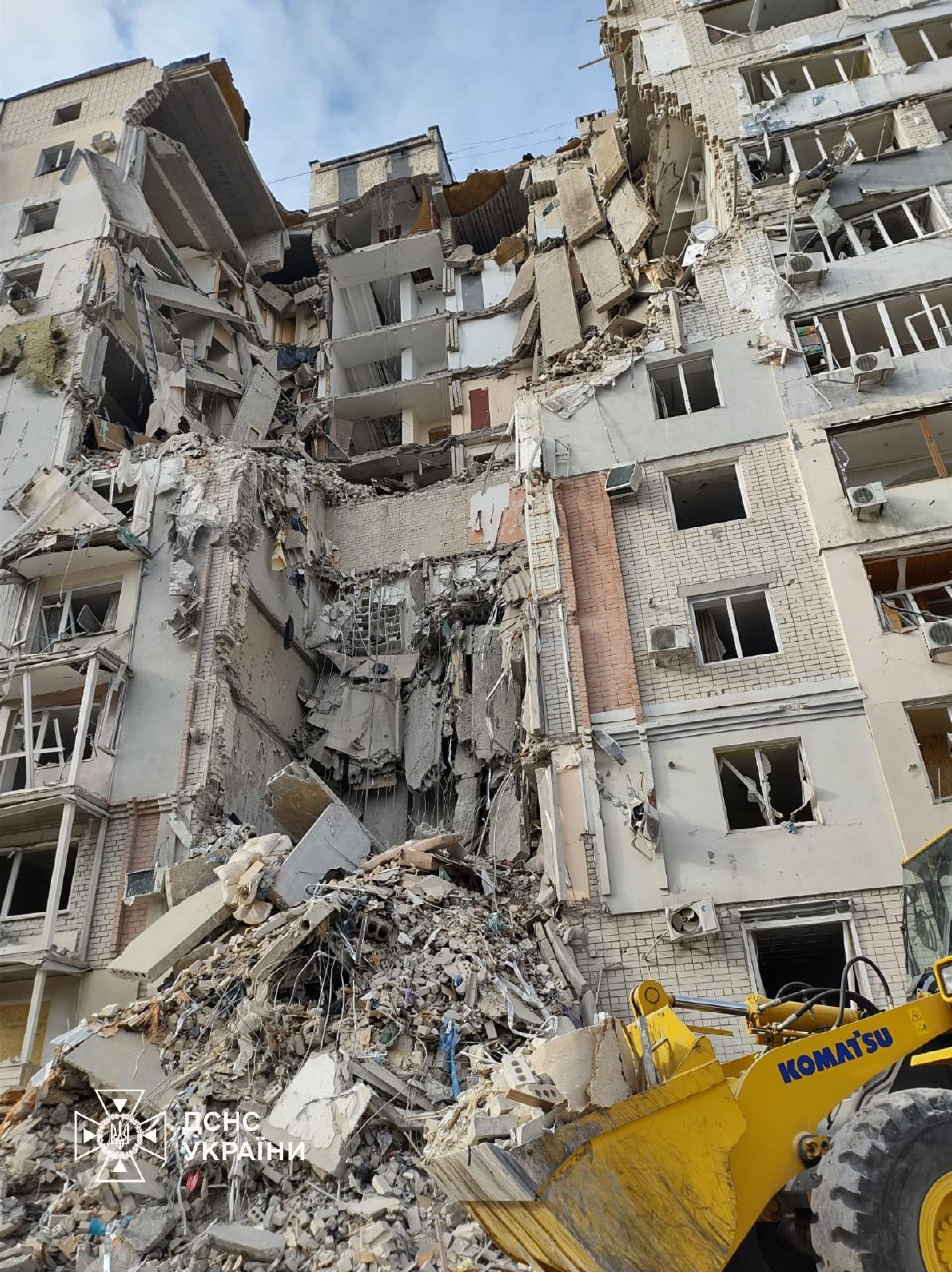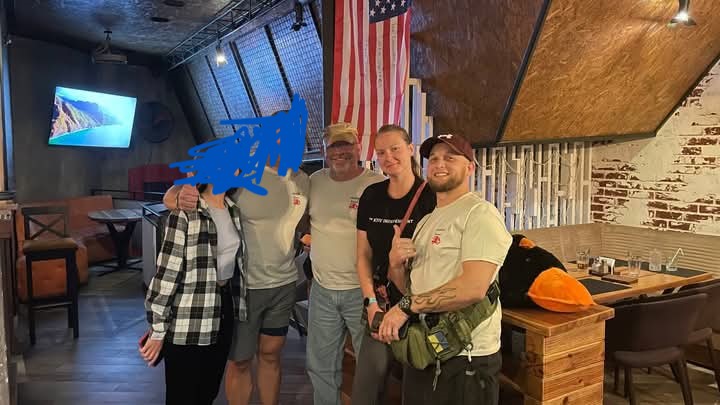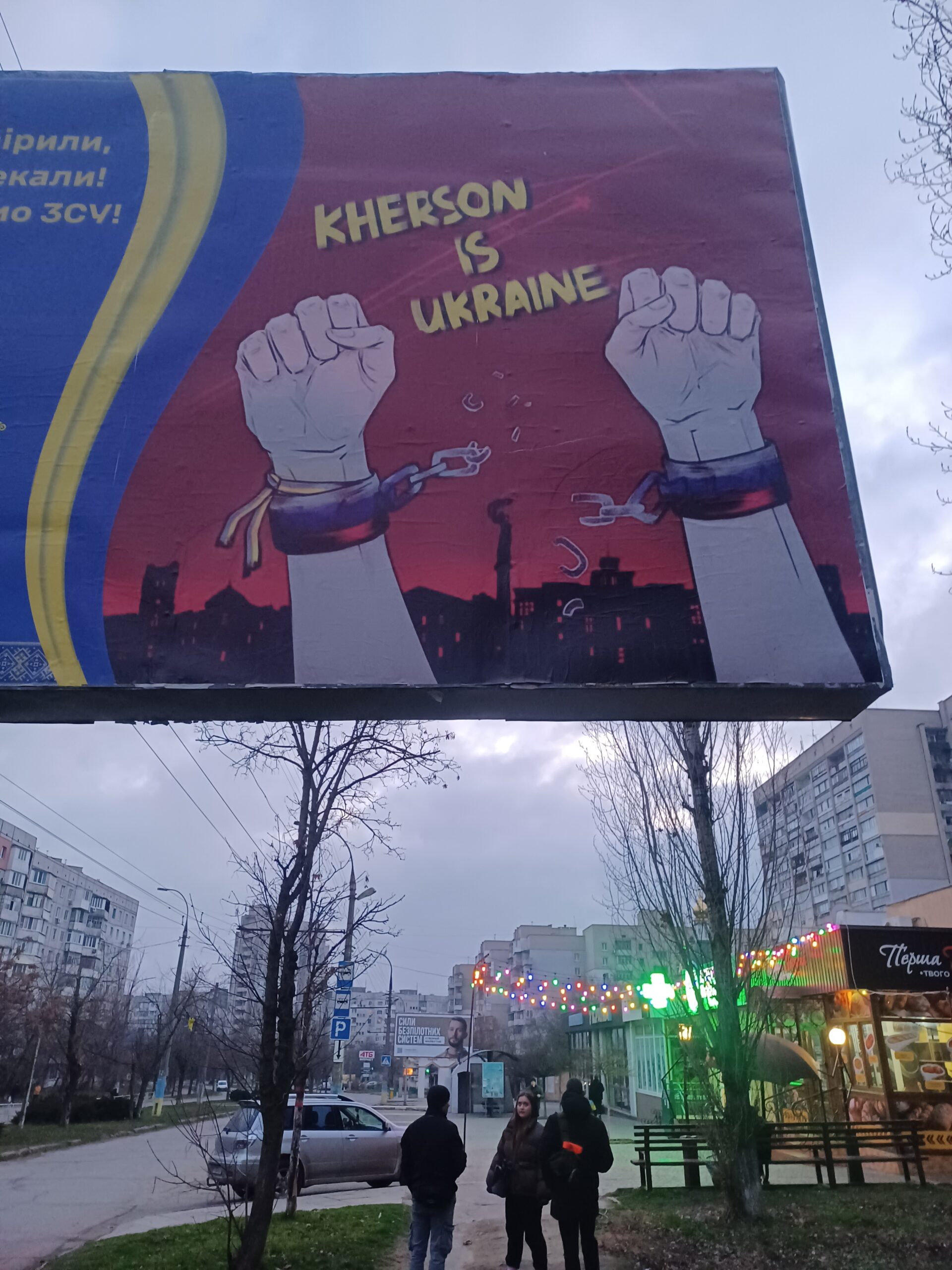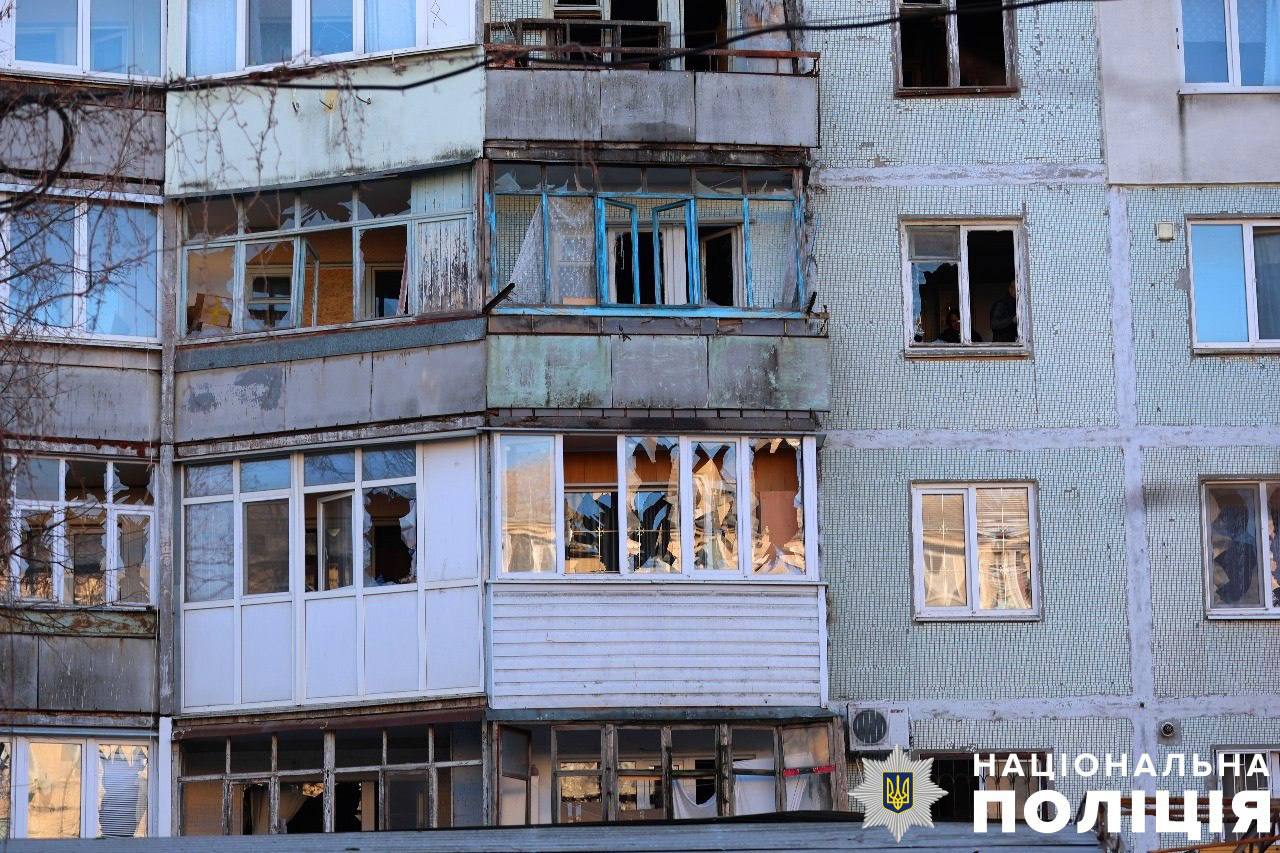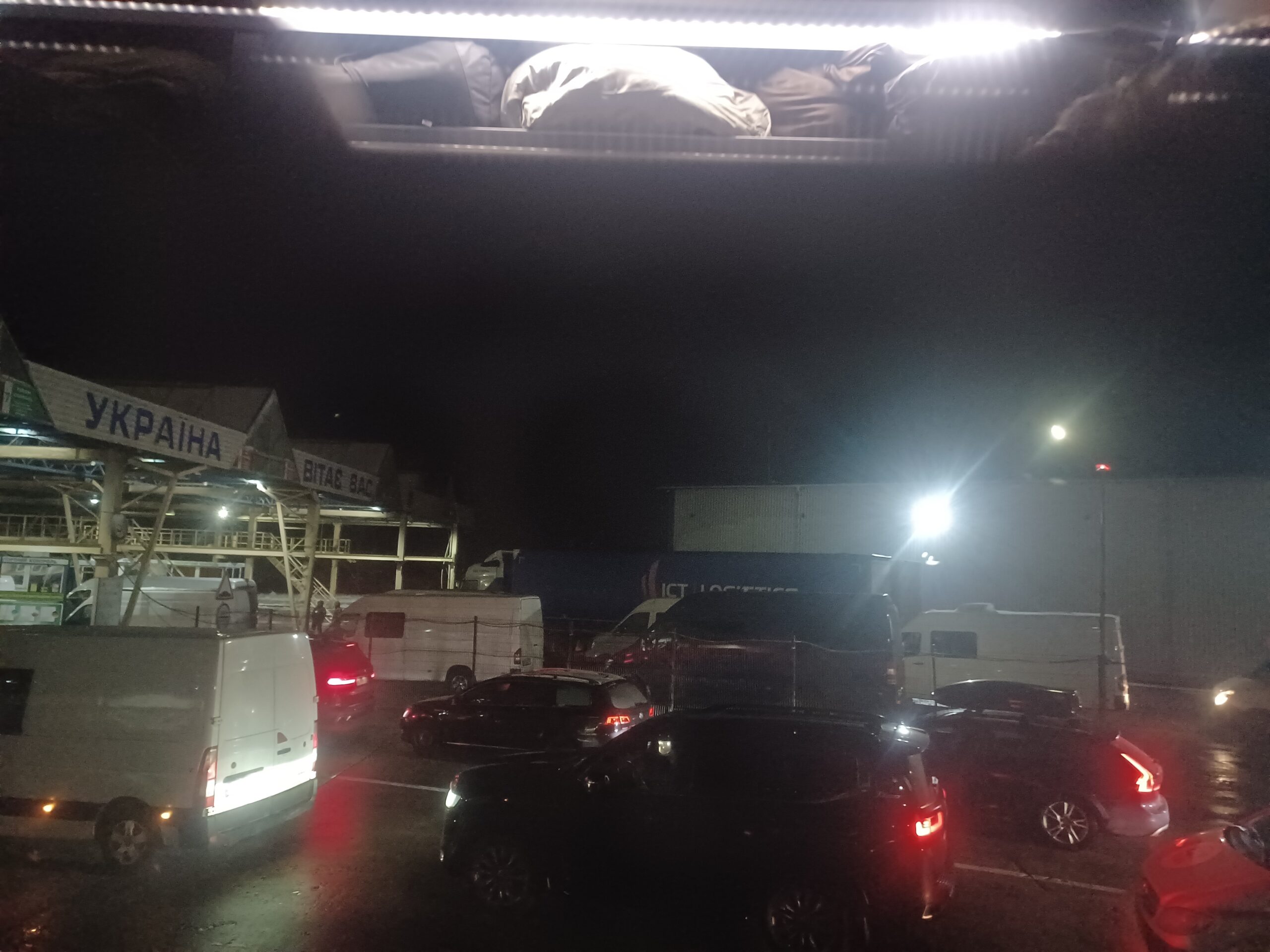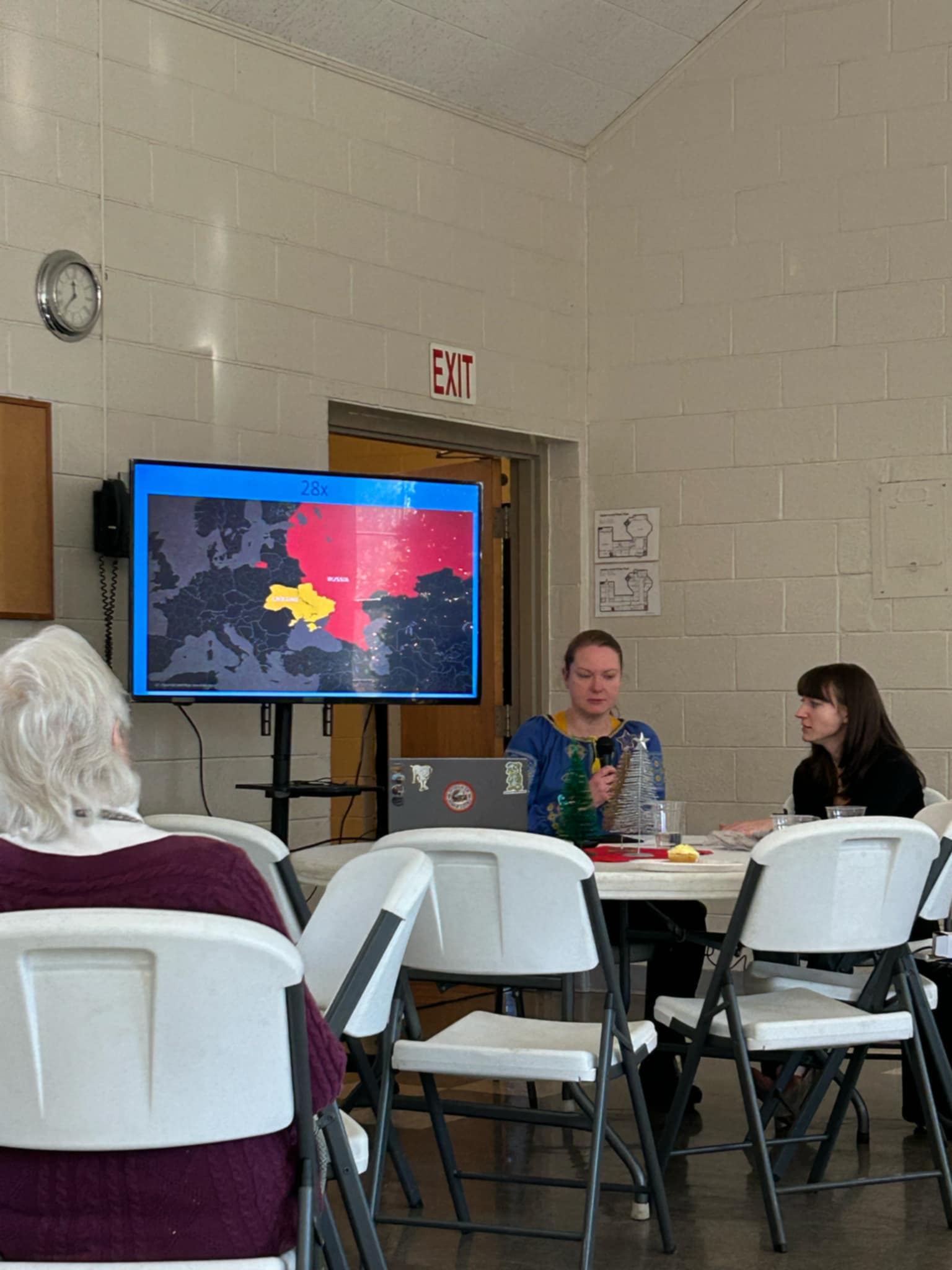The night of March 12th, around 11pm to midnight, one of the released guided aerial bombs struck a street in a district with private homes. To go there to help with clean up, our organization issued us body armor. It was a light body armor, suited for heavy physical work but maybe less so for protection from danger. The drone detection and liquidation personnel were there, though.

Walking down the street was a scene of apocalypse. Rumbles of collapsed walls, roofs, and broken glass everywhere. While it was easy to tell which house the bomb hit directly (the damage was insurmountable and the debris there were being cleaned up by a literal excavator), the other homes were damaged by the blast wave. The wave not only collapsed some roofs and blasted windows and walls, it also had blown parts of peoples fences across the street to other people’s yards. The insides of some buildings didn’t look much better due to collapsed ceilings and damage from exploding glass.

While there were no human victims, a German shepherd dog died from heart attack during the first of the three bombs. Watching his owner bury him in the yard was the saddest thing of that day for me. The owner also shared that the day before the buried his father (died of cancer) and his mom had to be hospitalized.This man was close to losing both parents in one day, bomb-related or not. Other than the home that received a direct hit, this man’s home, garage, garden, and vehicle received the most damage, being almost directly across from the bomb impact.

This was my first time being present not only as a clean up crew member, but also at a location of such recent and such significant damage. The community response appeared exemplary. At the time of our arrival, all medical needs were already addressed, so it was mostly clean up and humanitarian aid agencies.The city park services, electricians, construction crews for roofs and windows, as well as less professionally skilled but equally effective volunteers for the physical labor, such as my crew. While I was mostly there for filming, I and anyone else could sweep up glass and shovel shingle and rocks.

While even the damaged houses still had at the very least the walls and the roof trusses left (not the one, whose debris were being removed literally by an excavator), the blast stripped bare the non-wooden roofing material, collapsed ceilings, blasted windows, and bent metal fences. Inside the homes we shook off bedding and carpets to sweep up glass. So. Much. Glass.

The curtains were shredded to pieces. Anything that stood on tables (plants, personal items, dishes) was in broken pieces on the floor. The ceiling was covering everything in pieces and dust. I’ve entered only two of the houses, and I was shocked at the damage caused by the blast wave. We were sweeping up and shoveling pieces of someone’s family homes: walls, windows, and roofs that kept them safe before; personal items that kept their memories; clothes, curtains and blankets that were shredded and could never be trusted to be fully clear of glass dust.

And the dog burial… It also easy could have been any of the local elderly and for the same reason – a heart attack from the sound of the explosion and the blast wave, or the shock of having seen the destruction of their homes. And that’s not including possible death from flying debris or pieces of blasted windows and the risk from fallen roofs.
The second day at this site had us spend much more time hiding from drones. While there was a drone detection mechanism, there did not see to be a drone deflector. The first few times I was quite confused. The idea was to be out of sight of drones, understood. But couldn’t hiding in homes that were falling apart be more dangerous than to be outside, if there was another blast wave? Later on hearing the artillery whistling, there was less time to think, and we just sheltered in place (lowered down where we stood).

hiding space??
Long story short, having spent 2 days at this location, another major guided bomb explosion occurred at the city center around 2pm on the second day.

We then switched over to that area to help with clean up. Since we used to live in the center, this was the area we passed and did our shopping daily. This was one of our favorite stores, next to a small kiosk where we got cigarettes and energy drinks. Next to the bus station we used daily after moving out of the center district but still working here.

Another sad point was the presence of Parks of Kherson at both locations we have been at. They should be planting flowers and cutting stray tree branches. But there is little outdoors recreation in Kherson, even in such great weather. Only destruction.

Parks of Kherson staff in their uniforms and body armor
It is Sunday now, and Max was called to go to a new site after last night’s guided aerial bomb assault. Three days, three major attacks on different districts. This time there was at least one death. Where is that goddamn ceasefire?
